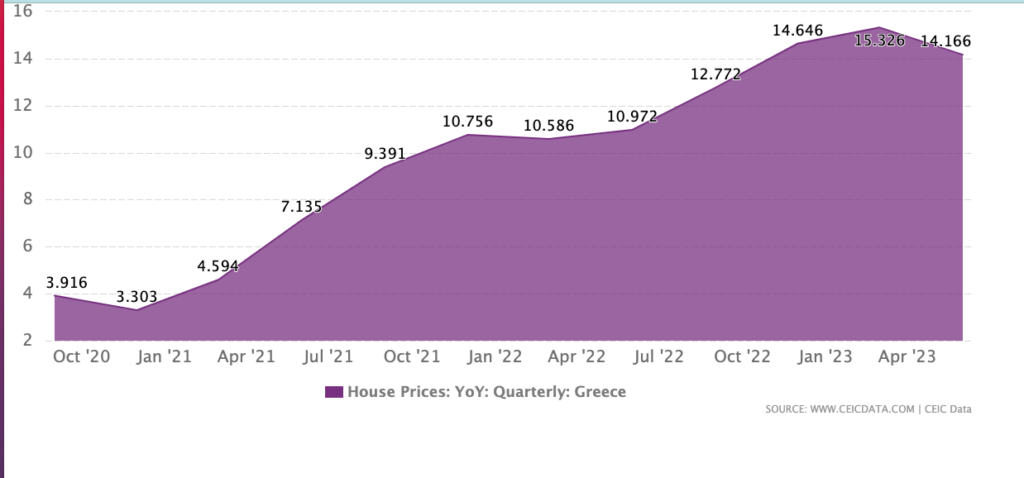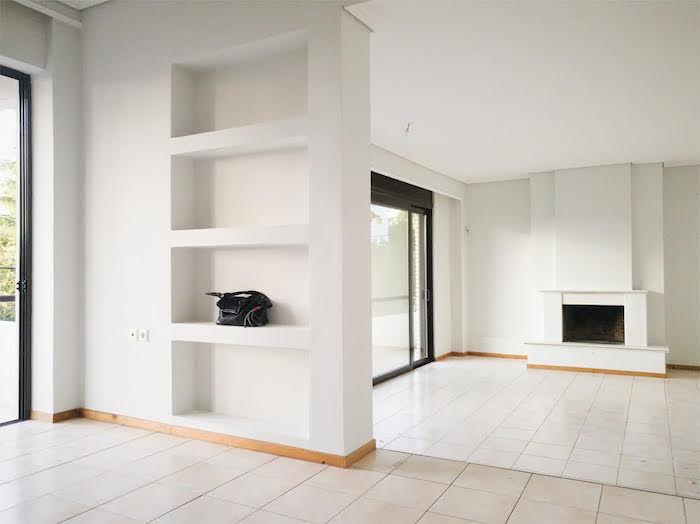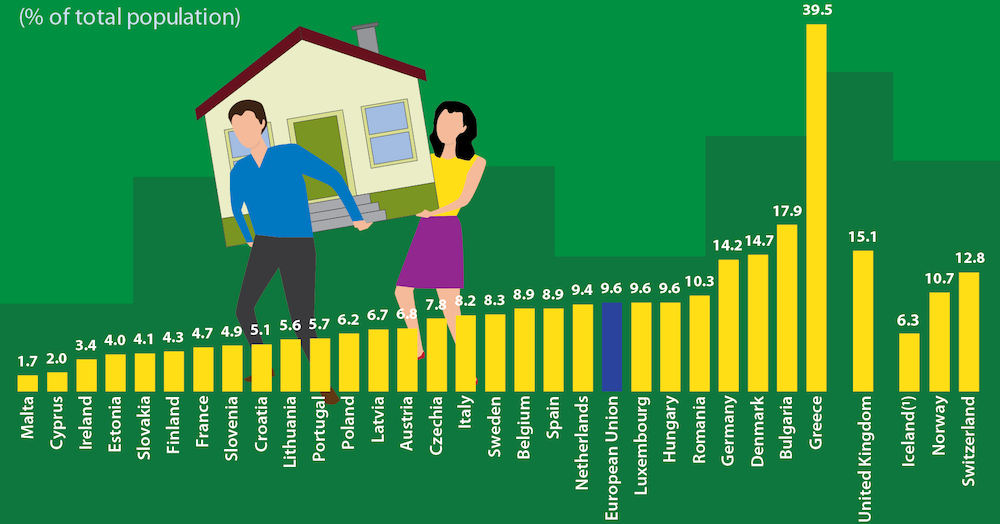(Editor’s note: This is Pt. of a two-part series on housing in Greece. You can jump to Pt. 2 here.)
According to a recent report by the National Bank of Greece, Greek housing prices have risen 50 percent since 2017. In the major metro areas of Athens and Thessaloniki, prices have increased by 16 percent-plus just in the third quarter of 2023. Salaries, however, remain pitifully low as compared to other European Union countries and inflation has soared.
So, it stands to reason that affordable housing has become a problem for many people living on local incomes.

A bit of the back story
In the past 15 or so years, Greeks have, on the whole, lost about 40 percent of their disposable income, according to independent NGO Dianeosis. At the same time, tourism and the demand for short-term rentals have greatly increased, which has also affected housing availability, as well as prices.
Additionally, the Golden Visa program has also been partially responsible for driving housing prices up. That is apparently why Portugal recently ended the residency through real estate investment portion of their Golden Visa program.
Government policies aimed at keeping housing affordable were axed or otherwise negatively affected by various austerity measures taken between 2010 and 2017 and are only now being discussed again as the situation has become dire for many.
According to the Bank of Greece, nearly a third of the population is spending more than 40 percent of their income on housing, which is a much higher proportion than the European average.
Having said all that, there are properties available to buy or rent. You might see that many of them are very high end and others are of poor quality, but both are often overpriced. The truth is that ‘sensible’ housing – and by that I mean good quality and location but not too fancy – is getting harder and harder to find.
It’s there, but you might have to work to find it.
Can I find value for money?
Though many expats in Greece either have higher than average local incomes or incomes which originate from outside of Greece and are higher than local incomes, the issue of housing has become a concern for all residents as the value for money equation becomes more and more problematic.
You can find some value-for-money properties though the markets in the bigger cities especially are quite tight so extra time and patience might be needed.

Views on transplants
As a bilingual Greek-American, I sometimes slip between languages and identities, depending on the situation. People don’t always realize I am a “halfie” with two nationalities and this has given me some insight into the difference between how Greek and non-Greeks are treated, in general, as well as on the housing market. I have lived in several rentals over the years and my husband and I recently purchased a home (after a looooong search), so I have had a variety of related experiences.
Non-Greeks who don’t have much or any money (such as political or economic migrants) unfortunately often face a significant amount of xenophobia and are frequently turned down for housing. On the other hand, property-seeking non-Greeks from North America, the UK or other European countries are usually treated with respect on the surface, but are often presented with jacked-up prices, the assumption being that they are all wealthy and should be relieved of some of their funds, even if that means they are way overcharged.
Please note that negotiating is both allowed and respected so be sure to not think of any asking price as final.
For those of you who are moving to Greece as retirees, digital nomads, transfers of a multinational company, seekers of a new cultural experience, etc, please keep a few things in mind before you sign on the dotted line for any lease or purchase contract.
• Do!
Do look carefully at your budget before you do anything else. Get a clear overview of your monthly income, compare it with local incomes and use a few of those online cost of living calculators to compare average Greek prices to those in your current country. This will help you to get a sense of the difference in household budgets between Greece and the country from which you will be arriving.
It helps to be prepared with a realistic overview of everyday spending.
• Do!
Before contacting any real estate agents or viewing any properties for purchase, be sure to look into local market prices. You can start by checking out the “objective property value” (as determined by the Greek government for official purposes, such as taxation).
Please note that the relevant website gives the government’s determination of price per square meter and each municipality usually contains more than one zone. I recommend that you peruse the site, compare prices and get a sense of the more and less expensive areas.
The map also shows the topography of each area so you can see where each neighborhood is in relation to the sea, the mountains, etc. This tool can also be useful for anyone looking for short- or long-term rentals. If you want to get the literal lay of the land and an idea of which are the more upscale and which are the more humble communities, definitely take a look.
Be sure to consider commute times for school/work when choosing a desired location. Athens and its suburbs unfortunately have a LOT of traffic, as public transportation networks are not sufficient for the population. If you are moving to Athens or its surrounds, this two-part guide to neighborhoods will come in handy.
–––––––––––
Read more about Athens here in Dispatches’ archives.
A Pittsburgher by birth, Christina T. Hudson is also half Greek and has – so far – spent most of her life in Athens, the chaotic but captivating capital city of Greece.















